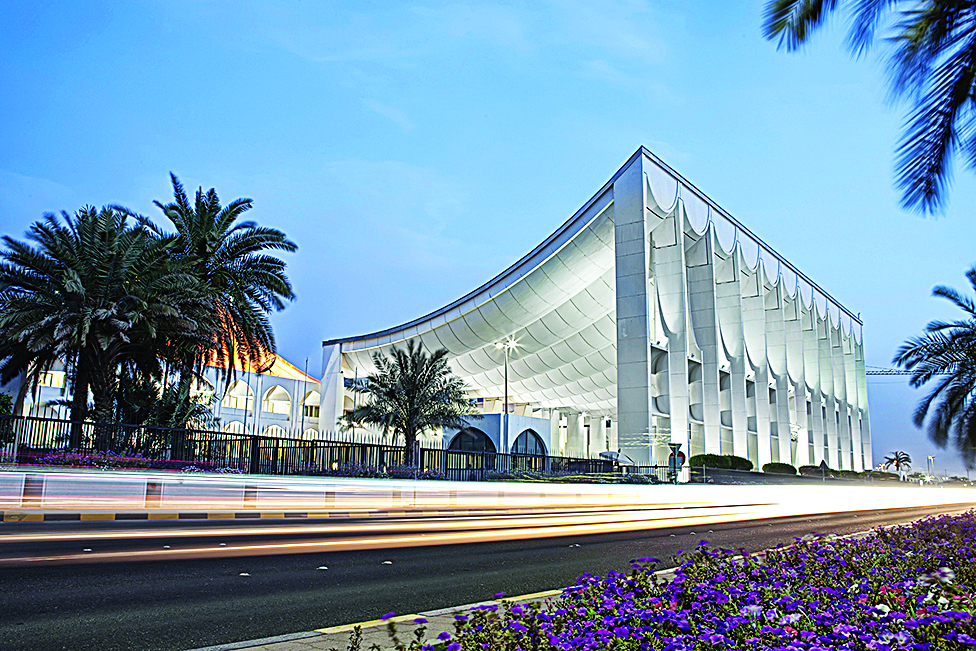By B Izzak
KUWAIT: Kuwait budget for the 2023/2024 fiscal year is projecting a huge deficit of KD 6.8 billion as a result of a slide in the country’s oil production and conservative prices of oil, the rapporteur of the National Assembly budgets committee said on Monday. MP Osama Al-Zaid said the committee began studying the draft budget as approved by the government, which projects revenues at KD 19.4 billion, around 18 percent lower than the previous year, and spending at KD 26.2 billion, 11.7 percent higher than the previous year.
He said that oil income is estimated at KD 17.2 billion, a 19.5 percent drop from the previous year as a result of cuts in production in line with OPEC+ decisions and also due to adopting a conservative price of oil at $70 a barrel. Zaid said non-oil revenues are estimated at KD 2.2 billion, 10 percent higher than the last fiscal year. The lawmaker said oil income still dominates revenues in the budget, which is not healthy and “we should look for other sources to boost non-oil income”. Zaid however insisted that the budget deficit is a projection and at the end of the year, “we could end up realizing a budget surplus” if oil prices and production rise.
The lawmaker said wages and similar spending account for KD 14.7 billion, an increase of 14 percent, while subsidies account for KD 5.9 billion, of which KD 3.5 billion is for energy and fuel subsidies. Zaid however stressed the financial situation of Kuwait is excellent because returns on huge foreign investments, estimated at more than $700 billion, are not included in the budget, and if they are included, the situation will be far better. Meanwhile, Minister of Oil and Minister of State for Economic Affairs and Investment Saad Al-Barrak said Sunday the Durra offshore field solely belongs to Kuwait and Saudi Arabia.
In a televised interview with a Saudi news channel, Barrak added there is no room for negotiations with Iran before the demarcation of the marine borders according to international law. He affirmed the Iranian claims are not based on clearly demarcated marine borders. The minister noted Kuwait and Saudi Arabia are “one team” when it comes to the Durra offshore field, and both countries have complete understanding and bilateral commitment based on the demarcation of borders and international laws.
Barrak pointed out Kuwait and Saudi Arabia are ready to develop the Durra field as soon as possible and begin various projects that were postponed due to the COVID-19 pandemic. Iran’s Foreign Ministry spokesman Nasser Kanaani said at a press conference in Tehran on Monday that Iran is pursuing the issue related to the Durra field within the framework of bilateral talks with Kuwaiti officials. In the meantime, the National Assembly is due to debate in its regular sessions on Tuesday and Wednesday the resignation of the president of the Audit Bureau Faisal Al-Shaya, among a host of issues including the Amiri address delivered at the inaugural session last month.
Shaya submitted his resignation to Assembly Speaker Ahmad Al-Saadoun last week, saying he was forced to step down over political interference in the work of the bureau. Eight non-governmental societies on Monday criticized the way Shaya was forced to resign and expressed in a statement fears that relations between the Assembly and the Audit Bureau will be governed by changing political events, when the bureau is supposed to be a neutral body. The organizations said the main issue here remains ensuring the independence of the Audit Bureau to be able to carry out its job of monitoring the finances of the state.
But MP Hamad Al-Mudlej insisted on Monday the reasons stated by Shaya as the cause of his resignation “were untrue”, claiming Shaya and his deputy have hidden important information from the Assembly, which is considered a crime. He said Shaya and his deputy have hidden information about dealings with a Zionist company by a state-owned enterprise, adding the monitoring team has proved that it was Shaya who forced senior bureau employees to conceal information.
Also, five MPs on Monday submitted a draft law calling on the government to grant Kuwaiti citizenship to up to 4,000 stateless people, locally known as bedoons. MPs have in the past submitted such a bill several times, but it was never implemented. The lawmakers said the priority should be given to bedoons who are children of Kuwaiti women, in addition to bedoons who fought in Arab wars under the Kuwaiti army.









